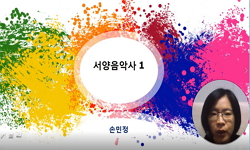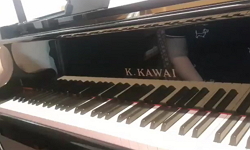본 연구는 조선 최초의 전문음악교육기관이었던 이화여자전문학교 음악과 졸업생과 일본에 있는 음악학교에 유학한 조선인 음악가가 식민지 조선의 서양음악 수용에 미친 역할에 대해 고...
http://chineseinput.net/에서 pinyin(병음)방식으로 중국어를 변환할 수 있습니다.
변환된 중국어를 복사하여 사용하시면 됩니다.
- 中文 을 입력하시려면 zhongwen을 입력하시고 space를누르시면됩니다.
- 北京 을 입력하시려면 beijing을 입력하시고 space를 누르시면 됩니다.

식민지조선의 서양음악의수용 - 조선인의 고등음악교육의 실태를 중심으로 = The Reception of Western Music within Colonial Korea -Focusing on the Actual Situation of Higher Music Education for Koreans
한글로보기https://www.riss.kr/link?id=A106981517
- 저자
- 발행기관
- 학술지명
- 권호사항
-
발행연도
2020
-
작성언어
-
- 주제어
-
등재정보
KCI등재
-
자료형태
학술저널
-
수록면
35-65(31쪽)
- DOI식별코드
- 제공처
- 소장기관
-
0
상세조회 -
0
다운로드
부가정보
국문 초록 (Abstract)
이화여자전문학교 음악과의 졸업생과 일본의 음악학교에 유학한 조선인들은 엘리트 음악가로서 활동을 하였고, 해방 전후의 고등음악교육기관에서 서양음악의 발전에 많은 기여를 하였다. 예를 들어, 그들이 집필한 음악이론서는 구미의 음악이론서를 일본어로 번역되어 일본에서 쓰였던 것을 참조한 것으로 음악 용어 또한 일본어로 번역된 것을 그대로 조선에서 쓰게 된다.
일본이 이미 수용한 일본식 서양음악의 이론이 그대로 조선인 유학생을 통해서 전해져 그 영향이 깊게 침투한 결과, 현재에 이르기까지 당시의 음악 용어 등이 통용되게 되었다. 그러나 현재의 한국인은 그것을 일본식 서양음악이 아니라 서양음악으로 인식하여 정착하였다.
이상으로 이화여자전문학교 음악과 졸업생과 일본의 음악학교에 유학 경험을 가지고 있는 조선인 음악가에 의한 활동은 식민지 조선의 서양음악의 수용과 형성에 일정한 역할을 하였다고 볼 수 있다.
본 연구는 조선 최초의 전문음악교육기관이었던 이화여자전문학교 음악과 졸업생과 일본에 있는 음악학교에 유학한 조선인 음악가가 식민지 조선의 서양음악 수용에 미친 역할에 대해 고찰하였다.
이화여자전문학교 음악과의 졸업생과 일본의 음악학교에 유학한 조선인들은 엘리트 음악가로서 활동을 하였고, 해방 전후의 고등음악교육기관에서 서양음악의 발전에 많은 기여를 하였다. 예를 들어, 그들이 집필한 음악이론서는 구미의 음악이론서를 일본어로 번역되어 일본에서 쓰였던 것을 참조한 것으로 음악 용어 또한 일본어로 번역된 것을 그대로 조선에서 쓰게 된다.
일본이 이미 수용한 일본식 서양음악의 이론이 그대로 조선인 유학생을 통해서 전해져 그 영향이 깊게 침투한 결과, 현재에 이르기까지 당시의 음악 용어 등이 통용되게 되었다. 그러나 현재의 한국인은 그것을 일본식 서양음악이 아니라 서양음악으로 인식하여 정착하였다.
이상으로 이화여자전문학교 음악과 졸업생과 일본의 음악학교에 유학 경험을 가지고 있는 조선인 음악가에 의한 활동은 식민지 조선의 서양음악의 수용과 형성에 일정한 역할을 하였다고 볼 수 있다.
다국어 초록 (Multilingual Abstract)
Graduates of the department of music in Ewha Women`s College and Koreans who studied at Japanese music schools acted as elite musicians, greatly contributing to the development of western music in higher and higher education institutions before and after liberation. For example, today this influence is still felt within the western musical terminology and western music theory that had been introduced by these Koreans who had studied abroad in Japan.
Japan’s modernized and musical westernization influenced music schools and books on music theory in Korea and resulted in Korea’s current situation of music theory typically being translated into Korean from Japanese. The Japanese version of western music theory that Japan had already incorporated into their own education system passed through Korean foreign exchange students, as well as Japanese music teachers in Korea, and was directly transmitted to colonial Korea. The resulting influence from this interaction was deep and today the same music terminology is still in circulation.
This study considers one aspect of the reception of western music in colonial Korea, focusing on Korea’s first department of music in Ewha Women`s College, as well as analyzing the roles of Korean musicians who studied abroad to music schools in Jap...
This study considers one aspect of the reception of western music in colonial Korea, focusing on Korea’s first department of music in Ewha Women`s College, as well as analyzing the roles of Korean musicians who studied abroad to music schools in Japan.
Graduates of the department of music in Ewha Women`s College and Koreans who studied at Japanese music schools acted as elite musicians, greatly contributing to the development of western music in higher and higher education institutions before and after liberation. For example, today this influence is still felt within the western musical terminology and western music theory that had been introduced by these Koreans who had studied abroad in Japan.
Japan’s modernized and musical westernization influenced music schools and books on music theory in Korea and resulted in Korea’s current situation of music theory typically being translated into Korean from Japanese. The Japanese version of western music theory that Japan had already incorporated into their own education system passed through Korean foreign exchange students, as well as Japanese music teachers in Korea, and was directly transmitted to colonial Korea. The resulting influence from this interaction was deep and today the same music terminology is still in circulation.
동일학술지(권/호) 다른 논문
-
일본중학교 교과서검정과 독도 : 일본국회 의사록 분석을 중심으로
- 한림대학교 일본학연구소
- 곽진오 ( Kwak Jin-o )
- 2020
- KCI등재
-
日本における法定労働時間および時間外手当を巡る法制度の変遷考
- 한림대학교 일본학연구소
- 高橋孝治 ( Takahashi Koji )
- 2020
- KCI등재
-
- 한림대학교 일본학연구소
- 석주희 ( Suk Juhee )
- 2020
- KCI등재
-
개발과 근대화 프로젝트 : 제주와 오키나와가 만나는 방식
- 한림대학교 일본학연구소
- 손지연 ( Ji Youn Son )
- 2020
- KCI등재




 eArticle
eArticle







